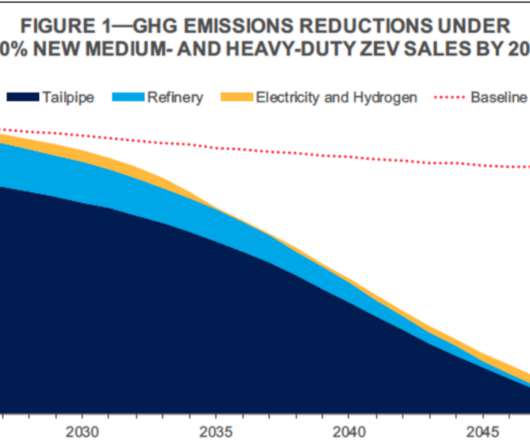Congressionally-created Commission Recommends Mileage Tax Instead of Fuel Tax for Transportation Infrastructure Financing
Green Car Congress
FEBRUARY 26, 2009
A bi-partisan Congressionally-created commission has recommended a shift from motor fuel taxes to direct fees charged to transportation infrastructure users—i.e., a federal mileage fee—as a way to reform financing of the US transportation infrastructure. The nation faces a crisis. Paying our Way”. of GDP today.


















Let's personalize your content